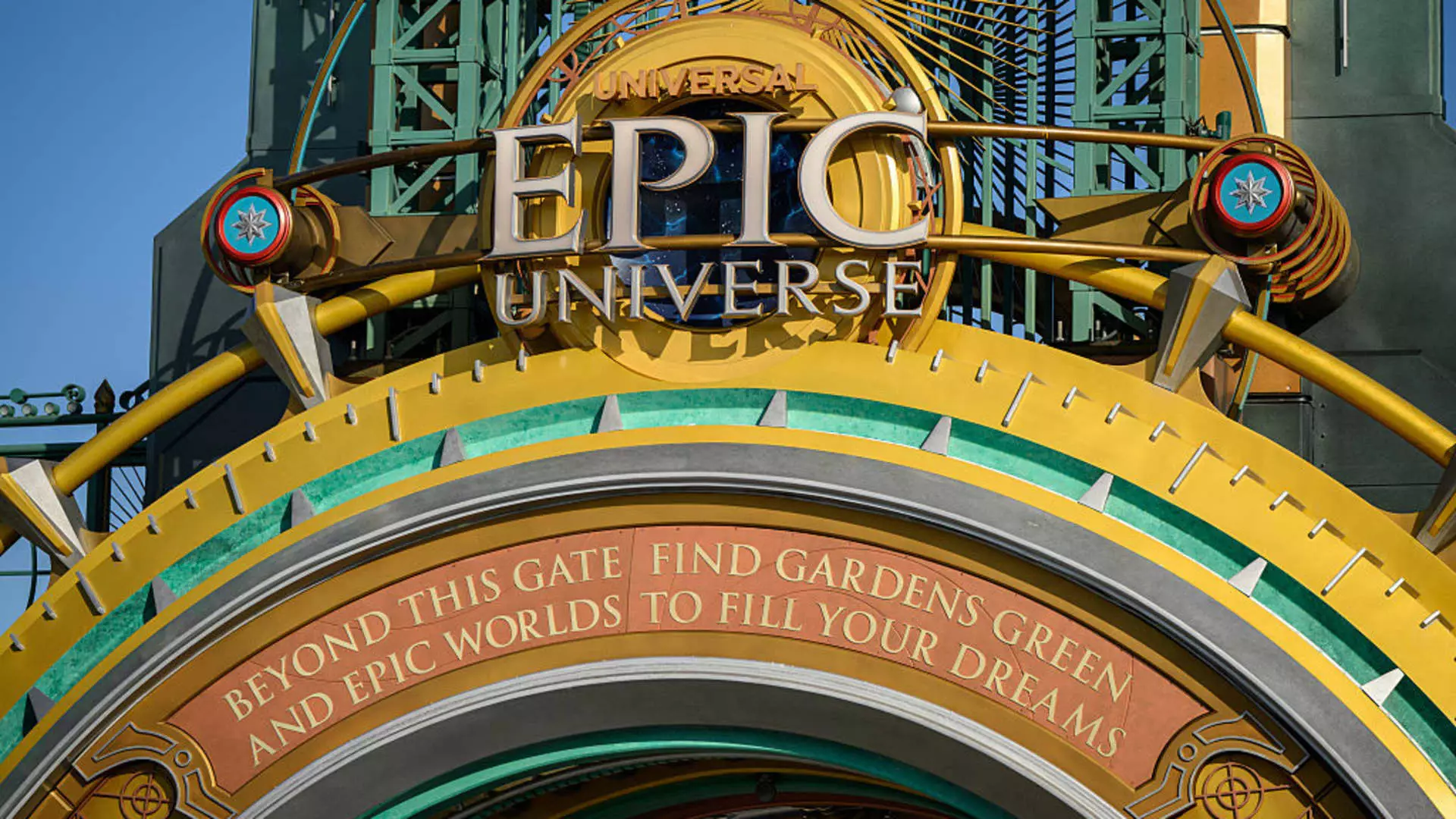As Universal prepares to unveil Epic Universe, the first new major theme park in Florida in 25 years, the anticipation surrounding this colossal project is palpable. Slated to open on May 22, 2024, Epic Universe will span an impressive 750 acres and house five fantastical realms, including The Wizarding World of Harry Potter, Super Nintendo World, and How to Train Your Dragon – The Isle of Berk. But while the excitement is understandable, it’s crucial to interrogate the ramifications this grand experiment will have on Orlando’s tourism sector and local economy.
The buzz surrounding Epic Universe hints at a significant shift not just for Universal, but for the entire tourist economy of Central Florida, drawing in a staggering 74 million visitors in 2023. It is reported that tourism accounts for about 50% of Orange County’s taxable revenue. Yet, we must scrutinize whether this influx will genuinely benefit the community or if it will principally serve corporate interests.
The Price of Progress: An Economic Double-Edged Sword
At an estimated $7 billion investment, Epic Universe represents the largest financial commitment that Comcast, Universal’s parent company, has made in its theme park ventures. While the numbers are impressive, the question arises: who truly benefits from this investment? The tourism sector is essential for regional development; however, there is a growing concern that the local populace might remain the last to experience the gains from such vast financial inflows.
Reports also indicate that this new park could deliver notable economic impacts, estimated at around $2 billion in its first operational year alone, and create over 17,500 jobs. But it’s essential to dive deeper into what type of jobs these are—primarily low-wage positions that may not significantly uplift the living standards of the current residents. Higher-paid roles in engineering and design are certainly welcome, but if the majority of job openings are for waitstaff or ride operators, the overall benefit to the community raises valid concerns.
The Domino Effect of Disney and Universal
There’s a prevailing theory that the opening of Epic Universe will lead to an overall uplift in tourism in the Orlando area, benefiting iconic brands like Disney. This phenomenon was seen when Disneyland Paris opened in 1992, initially raising fears that it might steal visitors from regional attractions. Instead, it spurred overall patronage. Under this lens of optimism, many expect an increase in foot traffic to Disney’s nearby parks as tourists allocate more time for their Orlando trips to explore both destinations.
However, this interdependence may not paint the whole picture. One must consider whether the influx of visitors will dilute the experience of the established parks. As more families flock to the new Universal site, will Disney’s carefully curated experiences be compromised by an oversaturation of attendees? The “rising tide lifts all boats” sentiment could backfire if visitors find themselves navigating overcrowded landscapes across the entire region.
The Structural Boom and Its Neighborhood Impact
Another aspect to contemplate is the flurry of construction and infrastructure developments surrounding the park. Local business leaders along with tourism executives like Casandra Matej have touted these developments as signs of growth. While new hotels and restaurants are essential for accommodating increasing tourists, one must ask: are these developments accessible to and beneficial for existing residents?
As the Epic Universe construction project advances, housing markets may become increasingly inflated, further limiting affordability for current residents and leading to potential displacement. The reshaping of neighborhoods to cater to an influx of tourists raises ethical concerns about prioritizing corporate interests over the needs of the local populace.
Long-Term Sustainability of an Over Tourist-Dependent Model
Orlando’s reliance on tourism as a cornerstone of its economy poses questions about long-term sustainability. As the allure of new attractions waxes and wanes, will this dependency hinder resilience against external economic shocks? If tourists were to favor emerging destinations over Orlando because of changing trends, the consequences could be severe.
Moreover, the environmental implications of additional tourism should not be dismissed. The theme park industry is notoriously resource-intensive, and Florida’s ecosystem faces pressures from constant influxes of visitors. It is high time for stakeholders to emphasize sustainable practices rather than pursue profit alone.
A Call for Community Focus
While the excitement for Epic Universe is tangible, we must stay vigilant and demand that local communities are genuinely prioritized in the wave of progress headed to Orlando. The plans for economic growth should not solely pad corporate profits; they must uplift the lives of residents as well. Otherwise, what glitters may turn out to be a mirage—an attraction built upon overlooked consequences that the community will have to shoulder long after the fanfare fades.

